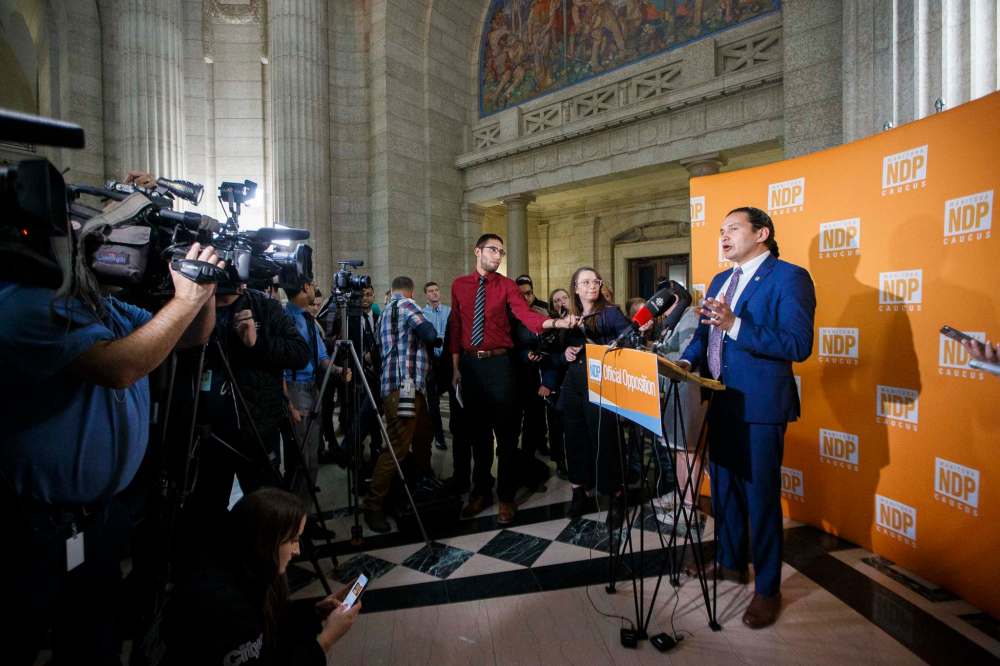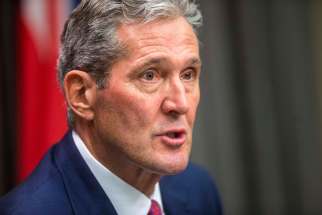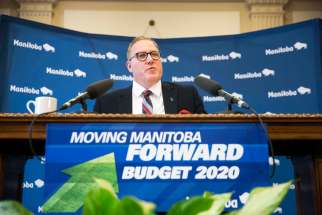This year’s Manitoba budget already thing of the past
Read this article for free:
or
Already have an account? Log in here »
To continue reading, please subscribe:
Monthly Digital Subscription
$0 for the first 4 weeks*
- Enjoy unlimited reading on winnipegfreepress.com
- Read the E-Edition, our digital replica newspaper
- Access News Break, our award-winning app
- Play interactive puzzles
*No charge for 4 weeks then price increases to the regular rate of $19.00 plus GST every four weeks. Offer available to new and qualified returning subscribers only. Cancel any time.
Monthly Digital Subscription
$4.75/week*
- Enjoy unlimited reading on winnipegfreepress.com
- Read the E-Edition, our digital replica newspaper
- Access News Break, our award-winning app
- Play interactive puzzles
*Billed as $19 plus GST every four weeks. Cancel any time.
To continue reading, please subscribe:
Add Free Press access to your Brandon Sun subscription for only an additional
$1 for the first 4 weeks*
*Your next subscription payment will increase by $1.00 and you will be charged $16.99 plus GST for four weeks. After four weeks, your payment will increase to $23.99 plus GST every four weeks.
Read unlimited articles for free today:
or
Already have an account? Log in here »
Hey there, time traveller!
This article was published 17/03/2020 (2097 days ago), so information in it may no longer be current.
The Manitoba government could still introduce its 2020 budget in the coming days. However, with many economists predicting the COVID-19 pandemic will trigger a global recession, the fiscal blueprint presented to media last week is already out of date.
The Opposition NDP continued to hold up house proceedings at the legislature Tuesday for the fourth consecutive day, preventing government from unveiling its budget and introducing bills. Opposition members — including the Liberals — have also been unable to ask questions about provincial measures to counter the spread of the novel coronavirus in question period.
That could change this week,if the NDP believes it has delayed proceedings long enough to prevent a cluster of government bills (which have been sitting on the order paper) from passing until the fall.

If the budget is finally introduced this week, many of the revenue and spending projections will have to be substantially updated to reflect the new economic reality. It’s unlikely government would print a new set of budget documents, but Manitoba Finance could release an addendum that lays out various scenarios.
The budget presented to the media last week remains under embargo. Those of us who have seen it are prevented from revealing or commenting on its contents; nevertheless, it’s safe to say the assumptions used to craft it are now almost irrelevant.
With businesses shutting down (or facing steep revenue declines), workers losing jobs, and overall productivity taking a nosedive, the income, corporate and sales tax projections will have to be significantly restated. Even gambling revenues — a lucrative source of government income — will take a hit with casinos temporarily closing and many VLTs in bars and restaurants going dark.
Premier Brian Pallister would be well-advised to reconsider his planned PST cut and new carbon tax scheme, which together would cost government at least $40 million a year in revenue. The Tories could also postpone plans to trim the payroll tax.
Government will be under pressure to offset this year’s economic hardship with stimulus spending in areas it hadn’t planned for. Health-care spending will be under growing pressure due to the novel coronavirus outbreak. There could also be added pressure on social services, as small businesses fail and people lose jobs.
We can’t reveal what the projected deficit was in last week’s budget document, but it will almost certainly now be higher than what was originally projected. If the economic damage is long-lasting, it will likely push the Pallister government’s 2022 balanced-budget target back a year or two.
Some of this could be offset by a federal stimulus package. Ottawa could, for example, increase Canada Health Transfer amounts to the provinces to help with soaring hospital, laboratory and community health-care costs. The federal government has greater fiscal capacity than the provinces right now, especially with Alberta getting pounded by plummeting world oil prices.
There is flexibility in a budget. Discretionary spending items can be postponed to cushion the blow of falling revenues.

For example, even before the budget was printed last week, the province announced it planned to offset the cost of what it called “fake funds” created by the previous NDP government. Fees were collected in past years for items such as the Manitoba Opportunities Fund and the Victim’s Assistance Fund that were recorded as revenues, yet not all the money collected was paid out. Many of the funds were created 10 to 15 years ago; the cost of remediating those funds, expected to be in the tens of millions, could be delayed.
Regardless, revenue and spending projections will have to be significantly altered as the year goes on. If government provides an addendum with the release of the budget, Manitobans will have some idea of what’s in store for fiscal 2020-21.
We’ll have to wait until the Opposition NDP stops playing games at the Manitoba legislature before that happens.
tom.brodbeck@freepress.mb.ca

Tom has been covering Manitoba politics since the early 1990s and joined the Winnipeg Free Press news team in 2019.
Our newsroom depends on a growing audience of readers to power our journalism. If you are not a paid reader, please consider becoming a subscriber.
Our newsroom depends on its audience of readers to power our journalism. Thank you for your support.






